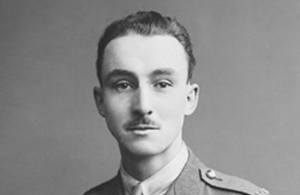WW1 Canadian VC recipient Milton Fowler Gregg
The story of Canadian First World War Victoria Cross recipient Milton Fowler Gregg.

Credit: National Defence Canada
70 men from Canada received the Victoria Cross, Britain’s highest award for gallantry, during the First World War. As part of the Centenary Commemorations the people of the United Kingdom marked their gratitude to those courageous men by presenting a bronze memorial plaque to their home country engraved with their names. The plaque is now displayed at the British High Commission Ottawa. This archive tells their stories.
Name: Milton Fowler Gregg
DOB: 10 April 1892
Place of Birth: Mountain Dale, New Brunswick, Canada
Date of Action: 27 September to 1 October 1918
Place of Action: Cambrai, France
Rank: Lieutenant
Regiment: Royal Canadian Regiment
Milton Fowler Gregg was born in Mountain Dale, Canada, on 10 April 1892. When the First World War broke out, he enlisted in the Canadian Expeditionary Force. He later received a commission as an officer and was also awarded the Military Cross for his actions at Lens in 1917. He was awarded a bar to his Military Cross for his conduct at Arras in 1918.
Lieutenant Gregg was awarded the Victoria Cross for his bravery and initiative from 27 September to 1 October 1918. It was whilst serving with the Royal Canadian Regiment near Cambrai, that he led his men in an attack through uncut barbed wire in the face of intense enemy fire. His citation explains more:
On 28th September, when the advance of the brigade was held up by fire from both flanks and by thick, uncut wire, he crawled forward alone and explored the wire until he found a small gap, through which he subsequently led his men, and forced an entry into the enemy trench. The enemy counter-attacked in force, and, through lack of bombs, the situation became critical. Although wounded, Lt. Gregg returned alone under terrific fire and collected a further supply. Then rejoining his party, which by this time was much reduced in numbers, and, in spite of a second wound, he reorganised his men and led them with the greatest determination against the enemy trenches, which he finally cleared. He personally killed or wounded 11 of the enemy and took 25 prisoners, in addition to 12 machine guns captured in this trench. Remaining with his company in spite of wounds, he again on the 30th September led his men in attack until severely wounded. The outstanding valour of this officer saved many casualties and enabled the advance to continue.
After the war Gregg returned to Canada. He also served during the Second World War, later becoming a Member of the Canadian Parliament and a Cabinet Minister. He died in 1978.